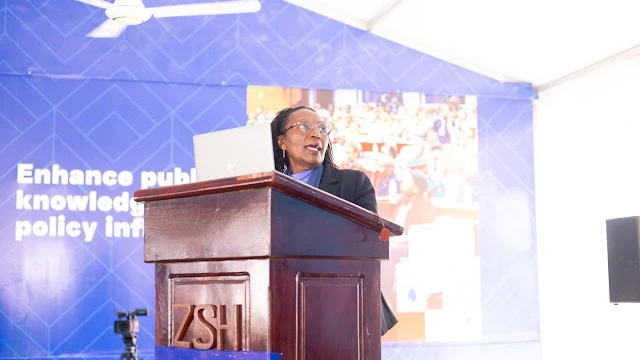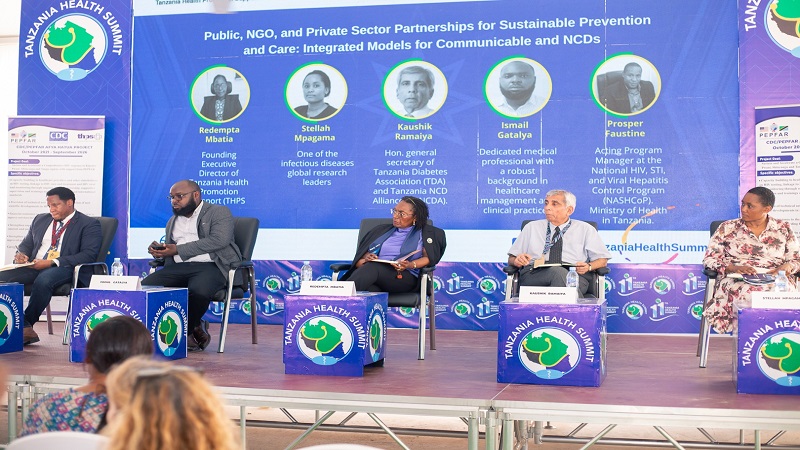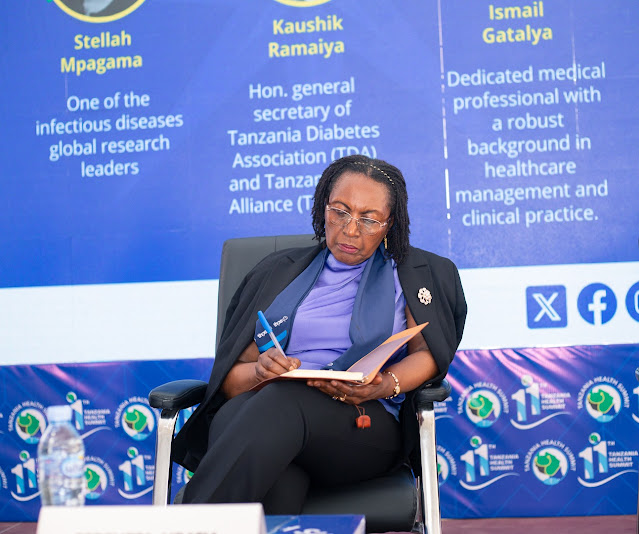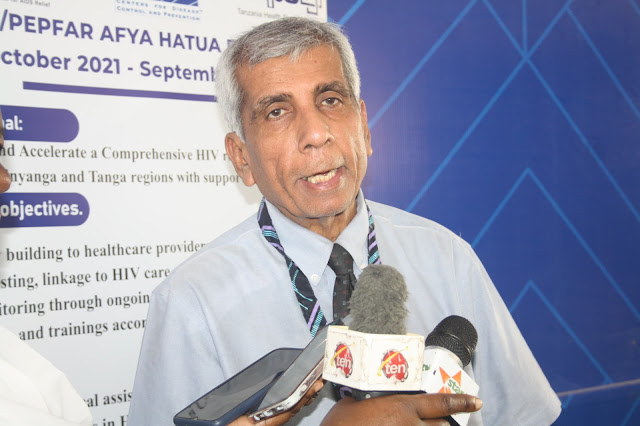Tanzania Health Summit: Stakeholders campaign for UHC to improve public health, reduce poverty

PEOPLE living with HIV (PLHIV) have a high prevalence of non-communicable diseases (NCDs) with risk factors including hypertension, depression, overweight/obesity, hypercholesterolemia, metabolic syndrome and alcohol consumption.
HIV infection causes on-going immune system activation and chronic inflammation, even when viral replication is well-controlled by antiretroviral therapy (ART). This chronic inflammation contributes to damage in various organs and systems, increasing the risk of NCDs like cardiovascular disease, diabetes, and kidney disease.
Even with effective ART, the immune system of PLHIV often does not fully recover to pre-infection levels. This incomplete immune recovery can lead to higher susceptibility to diseases that are influenced by immune system health, such as certain cancers and cardiovascular conditions.
NCDs are medical conditions that are not caused by infectious agents and cannot be transmitted from person to person. These diseases are typically chronic and progress over a long period.
According to 2012 estimates from the Joint United Nations Programme on HIV/AIDS (UNAIDS), 35.3 million people globally were living with HIV, and 1.6 million died from AIDS-related illnesses.
In contrast, the World Health Organization (WHO) estimates that more than 36 million people die annually from NCDs.
At this year's Tanzania Health Summit (THS), held recently in Zanzibar, the Tanzania Health Promotion Support (THPS) hosted a critical forum addressing the growing challenge of NCDs alongside the on-going burden of communicable diseases, such as HIV, tuberculosis, and emerging outbreaks.

The event gathered health experts to explore sustainable strategies for managing the dual burden of communicable and non-communicable diseases in Tanzania's healthcare system, particularly in light of constrained resources and decreasing donor support.
Dr Redempta Mbatia, THPS Executive Director, highlighted the urgent need for universal health coverage (UHC) and universal health insurance to address the growing NCD challenge.

Dr Mbatia emphasized that Tanzania is grappling with the rise of NCDs amid the on-going burden of communicable diseases like HIV and tuberculosis. She noted that lifestyle changes are increasing NCD risks, while the high healthcare costs for NCDs, coupled with budget constraints and reduced donour funding, require a focus on preventive and cost-effective service integration.
She recommended the integration of NCDs management within existing HIV/Aids service delivery models at the primary healthcare level, suggesting that counsellors be empowered to educate the public on lifestyle modifications.
THPS, in collaboration with Regional and Council Health Management Teams (R/CHMTs) through the U.S. President’s Emergency Plan for AIDS Relief (PEPFAR) and the U.S. Centers for Disease Control and Prevention (CDC), works to prevent HIV transmission and improve retention in antiretroviral therapy (ART) services.

He stressed the importance of wellness programs, which promote healthier lifestyles and reduce overall healthcare costs, and highlighted that 70 percent of NCD-related insurance claims arise from conditions detected late or in terminal stages.
He outlined key wellness programs that could have a significant impact, such as health promotion, awareness, screening, early detection, and regular check-ups. Lifestyle interventions, particularly in diet, exercise, and mental well-being, along with rehabilitation services for heart disease and stroke, can help restore function and improve quality of life.
Dr Prosper Njau, Program Manager at the National AIDS, STIs, and Hepatitis Control Programme (NASHCoP), discussed the successes and challenges of managing the aging cohort of PLHIV (people living with HIV) on ART.
He cited the Tanzania HIV Impact Survey (THIS), which showed progress towards the UNAIDS 95-95-95 goals, with 83 percent of PLHIV knowing their status, 98 percent of those on treatment, and many achieving viral load suppression.
Dr George Mgomella, Associate Director of Programs at the U.S. CDC, stressed the need for effective integration of NCD screening, such as for hypertension, within HIV services. This integration, he explained, would enhance health outcomes for patients, improve the quality of care, and contribute to a sustainable and resilient healthcare system.
THPS continue to work with the government including ministries and local authorities to ensure accessible and high-quality healthcare services.
The organization addresses public health challenges such as HIV/Aids, tuberculosis, gender-based violence, reproductive health, and more through initiatives like the CDC/PEPFAR Afya Hatua Project (2021–2026), which focuses on HIV prevention and treatment in four regions of Tanzania.
Top Headlines
© 2024 IPPMEDIA.COM. ALL RIGHTS RESERVED

























